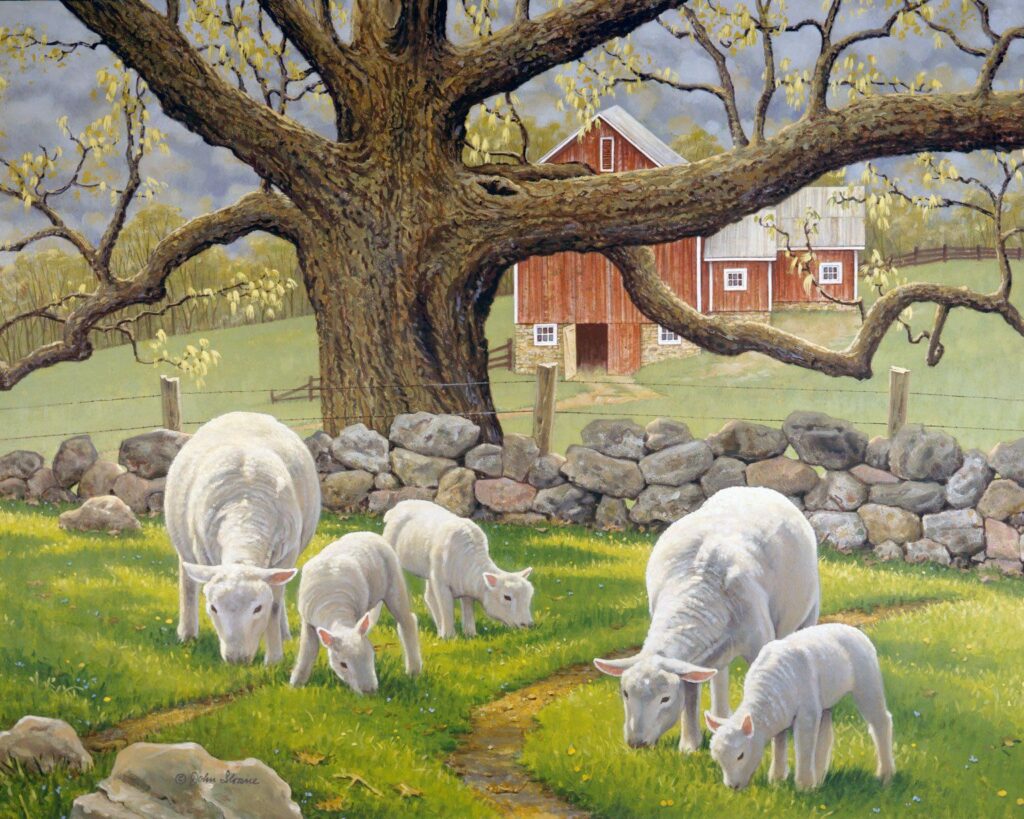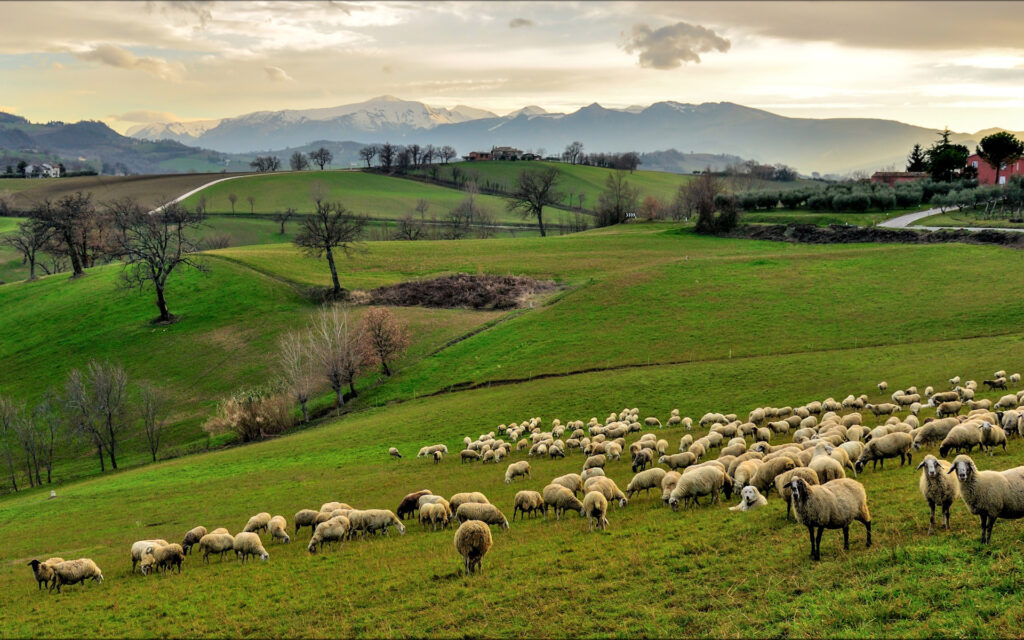Introduction
Nestled in the serene hills of Pine Knoll, sheep farming has become more than just an agricultural endeavor; it is an art form. This beautiful locale, with its rolling green pastures and pristine air, provides the perfect setting for raising sheep. Pine Knoll’s sheep farmers have honed their craft over generations, blending traditional methods with modern techniques to produce some of the finest wool and meat in the region.
The History of Sheep Farming in Pine Knoll
Early Beginnings
Sheep farming in Pine Knoll dates back to the early settlers who arrived in the area in the 18th century. These settlers brought with them hardy breeds of sheep that could withstand the rugged terrain and harsh winters. The early farmers had to be resourceful, using every part of the sheep for food, clothing, and trade. Over time, they developed a deep understanding of the land and the animals, creating a symbiotic relationship that has lasted for centuries.
Modern Developments
In the mid-20th century, sheep farming in Pine Knoll saw significant advancements with the introduction of new breeds and farming techniques. The use of selective breeding allowed farmers to enhance desirable traits in their flocks, such as wool quality and meat yield. Additionally, improvements in veterinary care and nutrition have led to healthier, more productive sheep. Today, Pine Knoll is renowned for its high-quality wool and lamb, attracting buyers from all over the country.

The Breeds of Pine Knoll
Merino Sheep
One of the most popular breeds in Pine Knoll is the Merino sheep, known for its incredibly fine wool. Merino wool is highly sought after in the textile industry due to its softness, warmth, and breathability. Pine Knoll’s Merino farmers take great pride in their flocks, carefully managing their grazing and shearing practices to ensure the wool remains of the highest quality.
Suffolk Sheep
Suffolk sheep are another common breed found in Pine Knoll. These sheep are primarily raised for their meat, which is known for its tenderness and flavor. Suffolk sheep are robust and adaptable, making them well-suited to the varied climate of Pine Knoll. The farmers’ dedication to maintaining the health and well-being of their Suffolk flocks ensures a steady supply of premium lamb to the market.
Heritage Breeds
In addition to the more commercial breeds, Pine Knoll is home to several heritage breeds, such as the Jacob sheep and the Cotswold sheep. These breeds are valued for their unique characteristics and historical significance. Farmers in Pine Knoll work diligently to preserve these breeds, recognizing their importance to the region’s agricultural heritage.
Sustainable Farming Practices
Pasture Management
Sustainability is a core principle of sheep farming at Pine Knoll. Farmers employ various pasture management techniques to maintain the health of the land and the wellbeing of their flocks. Rotational grazing is one such method, where sheep are moved between different pastures to prevent overgrazing and allow the land to recover. This practice promotes healthy soil and vegetation, which in turn supports healthier sheep.
Organic Farming
Many sheep farmers in Pine Knoll have adopted organic farming practices, avoiding the use of synthetic fertilizers and pesticides. Instead, they rely on natural methods to control pests and enhance soil fertility. Composting and the use of cover crops are common practices that help maintain soil health and reduce the environmental impact of farming.
Water Conservation
Water conservation is another critical aspect of sustainable sheep farming in Pine Knoll. Farmers implement measures such as rainwater harvesting and efficient irrigation systems to minimize water usage. Ensuring that their sheep have access to clean, fresh water is also a top priority, as it directly affects the animals’ health and productivity.
The Life of a Sheep Farmer
Daily Routine
The life of a sheep farmer at Pine Knoll is demanding but rewarding. A typical day begins early in the morning with feeding and checking on the flocks. Farmers must ensure that the sheep have enough food and water, and they regularly inspect the animals for any signs of illness or injury. This hands-on approach allows farmers to address any issues promptly, ensuring the well-being of their sheep.
Seasonal Tasks
Sheep farming is highly seasonal, with different tasks required at different times of the year. In the spring, lambing season begins, and farmers must be on hand to assist with births and care for the newborn lambs. Summer is shearing season, where the sheep are carefully shorn to harvest their wool. Fall and winter involve preparing the sheep for colder weather, ensuring they have adequate shelter and nutrition.
Community and Tradition
Sheep farming in Pine Knoll is deeply rooted in community and tradition. Many farmers are part of multi-generational farming families, with knowledge and skills passed down through the years. Community events, such as sheep shearing festivals and farmers’ markets, provide opportunities for farmers to share their experiences and connect with others who share their passion.

The Economic Impact
Local Economy
Sheep farming plays a significant role in the local economy of Pine Knoll. The sale of wool, meat, and other sheep products generates income for farmers and supports various local businesses. Wool processing, meatpacking, and agricultural supply stores all benefit from the thriving sheep farming industry.
Employment Opportunities
Sheep farming also provides employment opportunities for many residents of Pine Knoll. From farm laborers to skilled shearers and veterinarians, the industry creates jobs that are essential to the community’s economic stability. Additionally, agritourism has become a growing sector, with visitors coming to Pine Knoll to experience farm life and purchase locally produced goods.
Challenges and Solutions
Like any industry, sheep farming in Pine Knoll faces its share of challenges. Fluctuating market prices, changing weather patterns, and disease outbreaks can all impact farmers’ livelihoods. However, the resilient and resourceful nature of Pine Knoll’s farmers ensures they are always seeking innovative solutions to these challenges. Diversification, such as adding value-added products and exploring new markets, helps farmers mitigate risks and maintain their businesses.
Conclusion
The art of sheep farming at Pine Knoll is a testament to the dedication, skill, and passion of its farmers. Through sustainable practices, a deep respect for tradition, and a commitment to quality, Pine Knoll has become a beacon of excellence in the sheep farming industry. As the world continues to evolve, the farmers of Pine Knoll remain steadfast in their mission to preserve and enhance this timeless craft, ensuring that future generations can continue to enjoy the fruits of their labor.